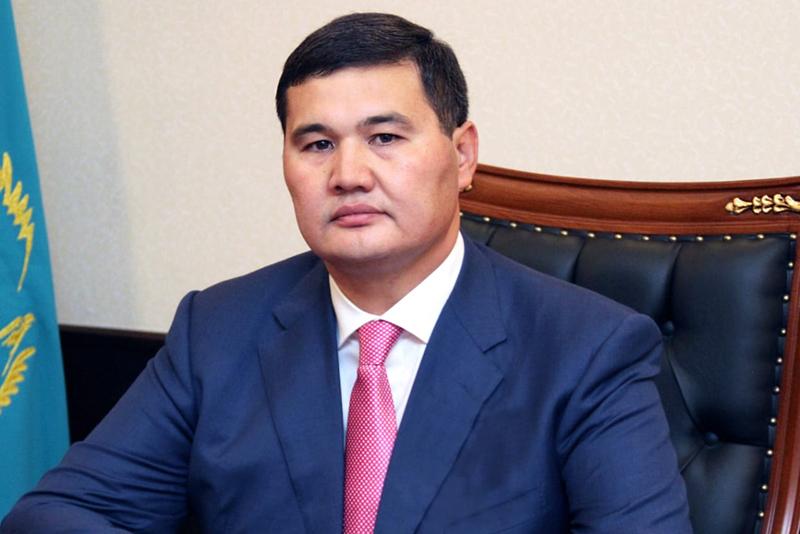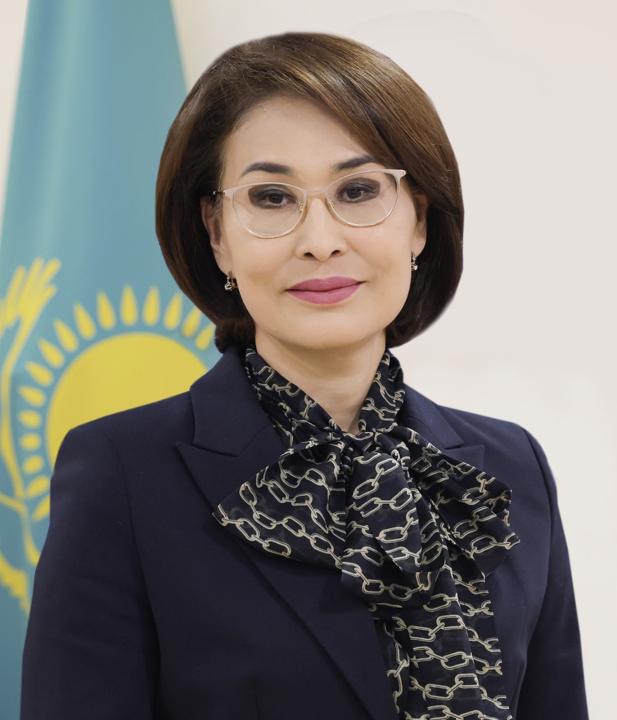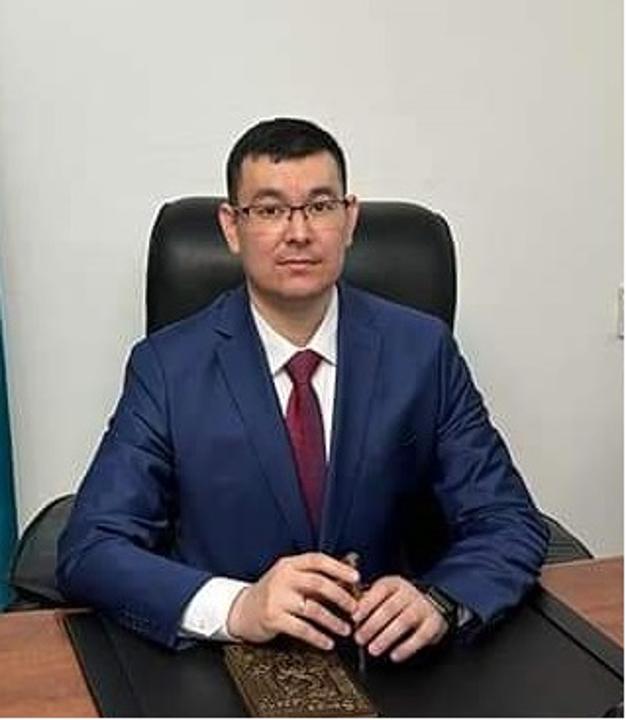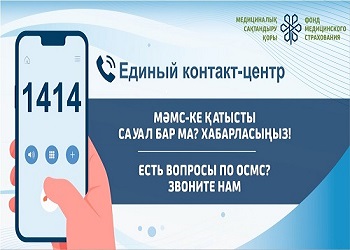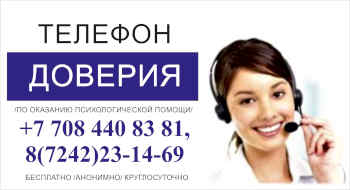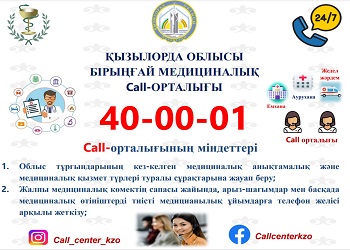DEPARTMENT OF CARDIOVASCULAR SURGERY
Dautbaev Berik Ruslanovich
Head of the Cardiology Center
Head of Department
First category doctor
The Department of Cardiovascular Surgery is the leading subdivision of the multidisciplinary regional hospital, where highly specialized, specialized medical assistance is provided to the population of the Kyzylorda region in 3 areas: cardiac surgery, vascular surgery, arrhythmology.
I.Cardiac surgery is a field of surgery that treats congenital defects or acquired heart and aorta diseases. Everyone is well aware that the heart is an important organ in the human body, so today so much attention is paid to the creation of new techniques and technologies in cardiac surgery. The highest qualifications, the use of modern technologies and the latest achievements of science allow us to achieve brilliant results in the treatment of the most complex diseases of the cardiovascular system. In the modern world, the most common disorder in the work of the heart is coronary disease. Coronary heart disease is a violation of the myocardial blood supply that occurs when an imbalance of the coronary blood flow and the needs of the metabolism of the heart muscle. In other words, less oxygen is supplied to the myocardium of the heart than it needs. The disease develops due to constriction of the coronary arteries of the heart, preventing full blood supply to the heart. Coronary disease can make itself felt in acute form in the form of myocardial infarction, and in chronic - in the form of periodic attacks of angina. Aorto-coronary bypass surgery is one of the most effective methods of treating the heart in the world. Such surgery is necessary to restore the circulation of the myocardium at the site of the narrowing of the vessel. This surgical intervention is carried out after a thorough clinical examination, functional load tests and coronary artery angiography. The latter is a procedure used to diagnose coronary heart disease. To do this, a special probe is made in the X-ray operating room through a small incision in the femoral artery, by means of which a contrast agent is inserted into the coronary arteries in order to detect narrowing or obstruction in them. Shunting surgeries are performed on the open heart using a heart-lung machine. For coronary bypass surgery, various types of shunts are used: venous and arterial. The venous shunt is a vein taken from a patient with a lower extremity. Arterial shunts are the patient’s own arteries, taken either from the forearm (radial artery) or the internal thoracic artery is used. When using the latter, the operation is called mammarocranial bypass. Also, a very large number of operations are successfully performed on the valve apparatus of the heart. Impairment of valve performance can be caused by various causes: congenital malformations, systemic autoimmune diseases, infectious diseases, calcification of valves, or traumatic damage. All this leads to a change in the configuration of the valve and the inability to properly perform its function. Depending on the disease, two types of operations are performed: valve plastic or prosthetics. An own valve is undoubtedly better than an artificial one, therefore, whenever possible, they try to preserve the natural valve and carry out its plastic in order to restore it, which will give the best results. However, plastic correction of valves is possible only in the absence of gross irreversible changes. In cases where the valves are significantly affected and are not subject to plastic surgery, prosthetics should be performed. Thanks to modern operating rooms and highly trained surgeons, the operation on prosthetic heart valves has become common for cardiac clinics. Valve prosthetics are performed not only for adults but also for children. For prosthetics, artificial valves of two types are used: mechanical and biological. Each type has its pros and cons. The advantage of modern mechanical valves is that they do not collapse with time and do not require replacement, unlike biological, which are subject to bio degeneration and require replacement in 10-15 years. The absence or slight risk of thrombosis and thromboembolism is the main advantage of biological valves over mechanical ones, in which the patient needs to take anticoagulants for life and every month to monitor the indicators of the coagulation system due to the high risk of thromboembolic complications. In the case of congenital heart defects in children, various kinds of operations are carried out. Due to the high professionalism and jewelry work of surgeons on a tiny heart, little children get a chance to live fully, successfully study in school, and play sports.
II.Vascular surgery is a branch of medicine dealing with the surgical treatment of circulatory failure associated with damage to the arteries and veins. The competence of vascular surgeons includes all arterial and venous lesions of blood vessels from the skull to the toes. When the arterial permeability is disturbed, the tissues do not receive enough blood, and with it, oxygen and nutrients. Which leads to the occurrence of peripheral artery disease. The reason for the violation of the patency of the arteries in most cases is atherosclerosis. The internal surface of the arteries is normally smooth, but with age, so-called atherosclerotic plaques, cholesterol clusters, narrowing the vessel lumen form in the artery walls. As a result, the tissues of the lower extremities do not receive adequate blood and oxygen. This lack of blood flow is called ischemia. The latter circumstance can cause discomfort or pain when walking. The pain may be localized in the buttocks, thighs, knees, legs, foot. The department specializes in the treatment of critical ischemia and gangrene of the lower extremities, the pathology of the carotid and vertebral arteries, and the treatment of acute ischemia of the lower extremities and the brain. Our arsenal of vascular surgeons includes emergency operations for venous and arterial thrombosis with the use of special tools for removing blood clots.
III.Arrhythmology. Heart rhythm disturbances or cardiac arrhythmias occur when electrical impulses that initiate heartbeats do not function correctly, causing the heart to beat too quickly or too slowly, or irregularly, irregularly. Arrhythmias are common and, as a rule, non-dangerous. In most cases, a person feels the loss of one or several contractions, interruptions in the work of the heart - “then beats, then not beats,” or a very frequent heartbeat. However, there are arrhythmias whose symptoms are dangerous, even life threatening. Progress in medical technologies has enriched the doctor with new medical techniques and procedures that allow to control and eliminate arrhythmias. In addition, since arrhythmia can worsen, and in some cases, itself has a damaging effect on the heart (deplete the heart muscle, disrupt the functioning of the valve apparatus, cause an increase in the size of the heart cavities), the risk of arrhythmia can be reduced by adopting a healthy lifestyle. food and sports.
The Department of Cardiovascular Surgery of the MRH has been operating since October 12, 2009, and is one of the main divisions of the cardiological center. Open to implement the Law of the Republic of Kazakhstan dated 07.07.2006. "On the protection of the health of citizens", the Government of the Republic of Kazakhstan dated February 13, 2007 No. 102 "On approval of the Program for the Development of Cardiac and Cardiac Surgery Assistance in the Republic of Kazakhstan for 2007-2009." In 2009-2010 cardiac surgeries were performed exclusively within the framework of master classes held by leading cardiac surgeons in our country and abroad. Since 2011, after preliminary training of specialists in clinics of near and far abroad, operations are performed on its own. The main task is to meet the needs of the population in the provision of planned and emergency care on sections of cardiac surgery in the administrative territory, as well as providing advice on this section and providing organizational and methodological assistance to other hospitals in the Kyzylorda region. The department specializes in providing routine and emergency care to patients with diseases of the cardiovascular system, congenital anomalies of the heart.
The main activities of the department:
1. Providing highly specialized planned cardiac surgery care for children with congenital anomalies of the heart (Aristotle 2 scale difficulty level)
2. Providing highly specialized planned and emergency cardiac surgery care to patients with coronary heart disease and acquired heart defects
3. Provision of highly specialized cardiac surgery care to patients with rhythm disturbances (implantation of EX-CRT-D, ICD)
4. Organization of work of diagnostics and provision of qualified medical care to newborns, premature born babies with critical heart defects
5. Performing endovascular surgery in OAD, DMPP, VSD
6. Providing specialized planned and emergency care to patients with vascular pathology.
The department is deployed on 20 beds, 15 cardiac surgeries and 5 vascular beds. The technical equipment of the department, operating room, cardioreanimation department (where patients come after operations) is a standard and is equipped with the latest medical technology. Annually modernized. Equipped with all the necessary medical equipment to complete the work (echocardiography raspischevodnym sensor ECG machine Holter monitoring, bedside cardiomonitors, intraaortic balloon kontrpulsator, the device intraoperatively-Saver, perfusors, vacuum suction, defibrillator protivoprolezhnevye system biochemical analyzer apparatus KHS and etc.).
The specialists of the center have close, friendly relations with colleagues from scientific centers, cardiac surgery departments of Kazakhstan, Russia, Lithuania; who provide advisory, practical assistance Since the opening of the cardiac center, 13 master classes have been held with the invitation of specialists from scientific centers of Kazakhstan and the near and far abroad (Viet Nam, Lithuania, Russia) to provide practical assistance and introduce innovative methods of surgical treatment to patients with cardiovascular pathology. ). More than 50 patients with various pathologies of the cardiovascular system were operated on, more than 400 patients were consulted.
The department successfully carried out complex high-tech operations. During the 5 years of the department’s operation, more than 550 open-heart surgeries and about 700 surgical interventions on the vascular system were performed. Currently, specialists of the department perform the following types of surgical interventions.
Heart surgery:
- Coronary artery disease - coronary artery bypass surgery
- Coronary artery bypass surgery in acute coronary syndrome (ACS).
- Surgery for lesions of the valvular apparatus of the heart of various origins (rheumatism, infective endocarditis, etc.) such as: isolated prosthetics and 2-valve prosthetics
- 2-valve prosthetics in combination with tricuspid valve plasty.
- Operations for children with congenital heart defects (septal defects, open Arterial duct, Fallot's tetrad)
- Coronary artery bypass surgery in combination with valvular prosthetics
- Apparatus of the heart
- Surgery to remove tumors and blood clots
Vascular Surgery:
- Arterial disease
- Atherosclerosis of the upper and lower extremities
- Atherosclerosis of the arteries of the aortic arch, carotid arteries
- Treatment of Leriche syndrome
- Treatment of aneurysms of the descending thoracic aorta, abdominal aorta, peripheral vessels
- Treatment of Takayasu syndrome
- Vertebrobasilar insufficiency, “stealing” syndrome
- Embologic artery occlusion
- Obliterating endarteritis, Vinivarter-Burger disease
- Nonspecific aortoarteritis (Takayasu’s disease)
- Syndrome of chronic abdominal ischemia (SHAI)
- Raynaud's syndrome
- Thoracic outlet syndrome (skalenus syndrome, accessory cervical rib)
- Thrombosis of the peripheral arteries of the upper and lower extremities
- Diseases of the veins and lymphatic system
- Varicose disease of the lower extremities
- Varicocele
- Thrombophlebitis veins, postthrombotic disease
- Acute venous thrombosis
- Chronic venous insufficiency, trophic ulcers
- Lymphostasis, lymphedema, lower limb elephantiasis
- Chemodektoma
- Diabetic foot
- Diabetic angiopathy
- Benign adrenal tumors
Arrhythmology:
- implantation of a single-chamber pacemaker
- implantation of two-chamber pacemaker
- implantation of a CRT-D resynchronization system
- implantation of cardioverter-defibrillator
It is planned to introduce in practice in the near future:
- ascending prosthesis and aortic arch surgery
- plastic surgery on the valvular apparatus of the heart
- bypass of the coronary arteries on the working heart with the “Off Pump”technique
- plastic left ventricle with left ventricular aneurysms
- reconstructive surgery on the thoracic aorta, brachiocephalic arteries
Our contacts:
+7 (7242) 23-51-50
+7 (7242) 23-52-78
+7 (7242) 23-51-96
extension numbers 174, 111, 224




